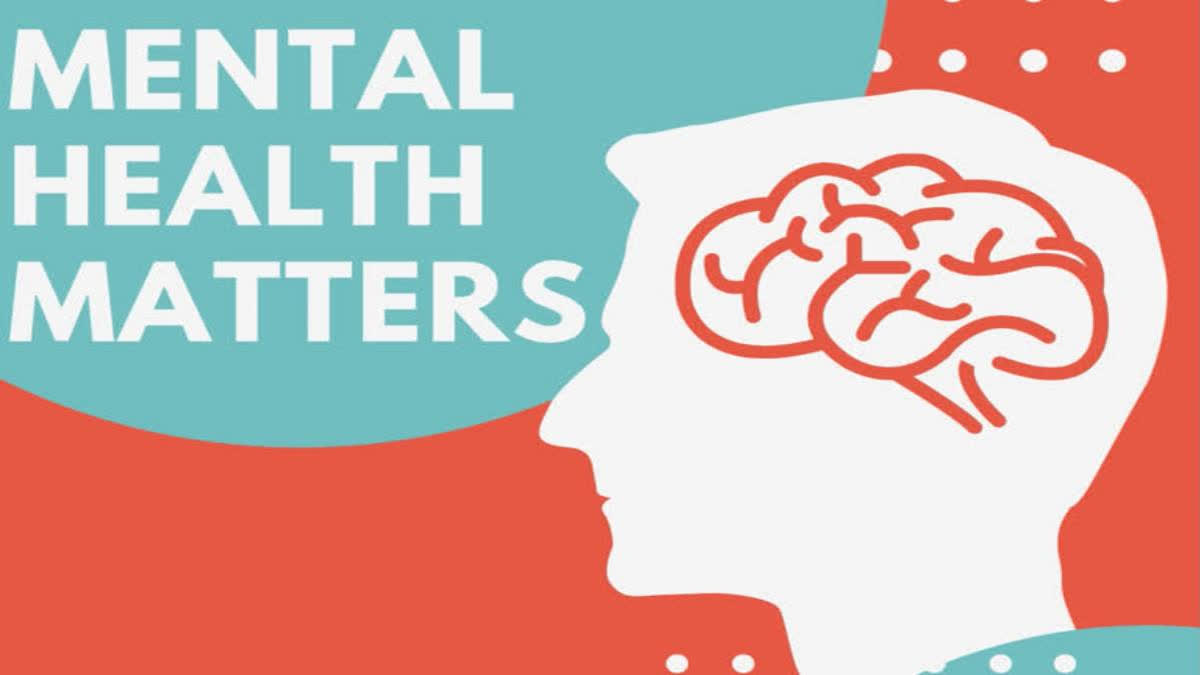New Delhi: Admitting that mental health disorders are associated with significant productivity loss, the Economic Survey 2023-24 tabled by Finance Minister Nirmala Sitharaman in Parliament on Monday recommended policy measures for better implementation of mental health programmes.
Significantly, this is the first time, the Economic Survey talks extensively about mental health, its significance and implications on policy recommendations.
National Prevalence of Mental Health
Acknowledging mental health as a principally impactful driver of individual and national development, the survey notes that as per the National Mental Health Survey (NMHS) 2015-16, 10.6 per cent of adults in India suffered from mental disorders while treatment gap for mental disorders ranged between 70 per cent and 92 per cent for different disorders.
Furthermore, the prevalence of mental morbidity was higher in urban metro regions (13.5 per cent) as compared to rural areas (6.9 per cent) and urban non-metro areas (4.3 per cent). Citing NCERT’s Mental Health and Well-being of School Students Survey, the economic survey highlights an increasing prevalence of poor mental health among adolescents exacerbated by the COVID-19 pandemic, with 11 per cent of students reported as feeling anxious, 14 per cent as feeling extreme emotion and 43 per cent experiencing mood swings.
The survey points out that at an aggregate economic level, mental health disorders are associated with significant productivity losses due to absenteeism, decreased productivity, disability and increased healthcare costs. There is also evidence of poverty affecting the risk of mental health via stressful living conditions, financial instability and a lack of opportunities for upward mobility, which contribute to heightened psychological distress.
Policy Recommendations on Mental Health
The survey stresses on proper implementation to accelerate the improvements made in mental healthcare on the ground and address gaps in the existing programmes to maximise their effectiveness. The survey also recommended re-doubling efforts to increase the number of psychiatrists, from 0.75 psychiatrists per lakh population in 2021 to the WHO norm of 3 per lakh population.
It suggested developing comprehensive guidelines for the excellence centre's services alongside mental healthcare professionals and users to understand their needs.
“Assessing the effectiveness of the programmes by gathering feedback from the users, professionals, and stakeholders to make necessary changes and meet the needs of a wider population. Nurturing peer support networks, self-help groups and community-based rehabilitation programmes can help de-stigmatisation of mental disorders and develop a sense of belonging,” the survey report on mental health recommended.
It also highlighted partnering with NGOs to scale up efforts, share knowledge and leverage resources to enhance future policies, to aid in identifying areas of improvement.
“Involving individuals with personal experience with mental health problems in decision-making, service planning, and advocacy efforts can increase the person-centricity and recovery orientation of mental healthcare services. Sensitisation of mental health at the preschool, Anganwadi level to provide precious early identification of disorders and standardisation of guidelines for mental health services across the government and private sector are some of the other recommendations suggested by the report.
It also highlighted effective pathways for integrating mental health interventions in schools, including developing an age-appropriate mental health curriculum for teachers and students, encouraging early intervention and positive language in schools, promoting community-level interactions and balancing the role of technology.
Read more: 8-8-8 Rule For Work-Life Balance: Helps To Improve Mental, Physical Health; Increase Efficiency



